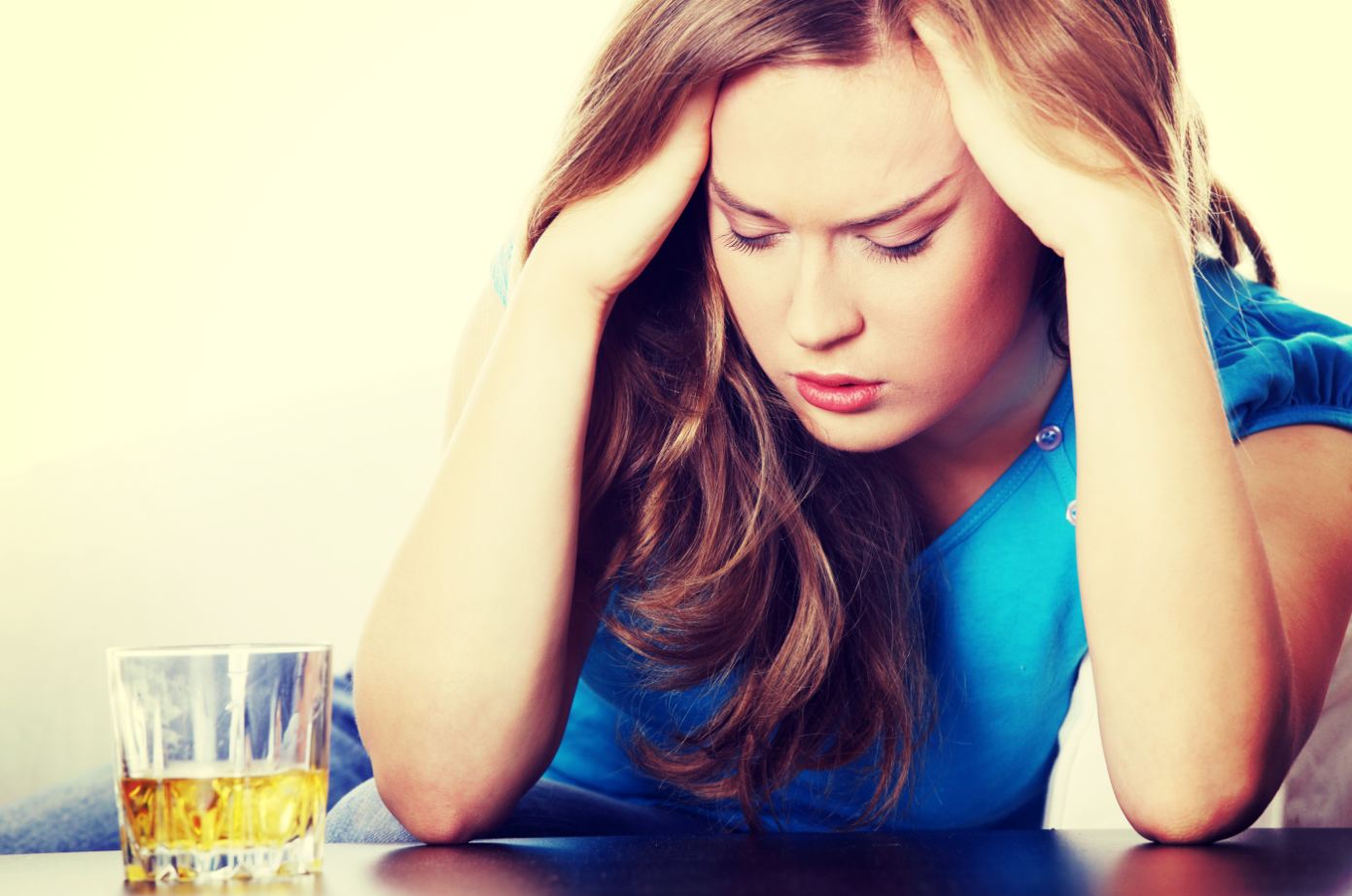In our society, it is commonly accepted for people to turn to alcohol when they are feeling down. In the movies and on TV, the hero or heroine is often portrayed drowning his or her sorrows at the local bar after losing a job, getting a divorce or experiencing another major disappointment. In small doses, alcohol may relieve feelings of stress or anxiety. But drinking heavily is often a sign of alcoholism. There is also a strong link between serious alcohol use and depression. The question is does depression lead to alcoholism or alcoholism induce depression? The answer is that both are possible.
What Is Depression?
Many life events can leave us feeling sad or down, but depression is different than just being sad. Situational sadness becomes depression when it lasts longer than 2 weeks, when you experience it for most of the day nearly every day, when your symptoms are distressing, and when you experience a negative impact in one or more areas of your life.
What Is Alcoholism?
Alcoholism now known as alcohol use disorder, is a condition in which a person has a desire or physical need to consume alcohol, even though it has a negative impact on their life. They do not know when or how to stop drinking. They spend a lot of time thinking about alcohol, and they cannot control how much they consume, even if it is causing serious problems at home, work, and financially.
The Link Between Alcohol And Depression
Alcohol can induce depression. Alcohol is a kind of depressant. Thus, It can lower neurotransmission levels or disrupt the balance in the brain, which will be a problem for people who are already feeling depressed. Drinking alcohol can let people feel relax because chemical changes are occurring in the brain. At first, it may feel as if alcohol is helping a person with depression to feel less depressed. But as time passes and they continue to drink, it can begin to go downhill and make their depression or anxiety worse. Drinking regularly actually lowers the amount of serotonin in the brain which is a chemical that regulates a person’s mood. However, Depression can lead to alcoholism. Nearly one-third of people with major depression also have an alcohol problem. Often, the depression comes first. At this point, they would like to do whatever they can in order to take the pain away. This is where the reason for drinking comes in. When they take too much drink, they will often feel relaxed and they will also forget about their problems and sadness. For those struggling with depression, this oblivion can be the easiest escape from the feelings they are having. So this can lead to alcoholism in order to escape depression.
Alcohol and Depression Treatments
Alcoholism and depression are a dangerous combination, but they are both highly treatable diseases and not moral weaknesses or character flaws. There are several treatment methods for alcohol and depression. These approaches include psychotherapy, antidepressant medications, electroconvulsive treatment (ECT), and other somatic therapies. However, ECT is generally avoided, except in extreme circumstances, in favor of both psychotherapy and antidepressants. Normally the depression and treatment center can provide both psychotherapy services and prescribe antidepressants, which differ for each person based on individual needs.
1)Medications:
can be taken to reduce craving by attenuating the rewarding effects of alcohol. Its results are somewhat inconsistent. (recently approved by the US Food and Drug Administration) blocks negative craving due to abstinence. Beneficial effects in preventing relapse have been consistent in many large studies. Selective serotonin reuptake inhibitors are more effective for the depressive component than for alcohol consumption. They seem to improve outcome by treating the underlying depression rather than by changing drinking behaviour per se.
2)Psychotherapy
Antidepressant medications have benefits, but are not a stand-alone treatment. The best treatment for alcohol and depression is a combination of addiction treatment, medication, and psychotherapy. Psychotherapy in conjunction with pharmacologic therapy includes cognitive and behavioural therapy, which has proven effective for both depression and alcohol dependence, and the general strategies of motivational interviewing, which maximize the chances of lasting results.
David Smith




